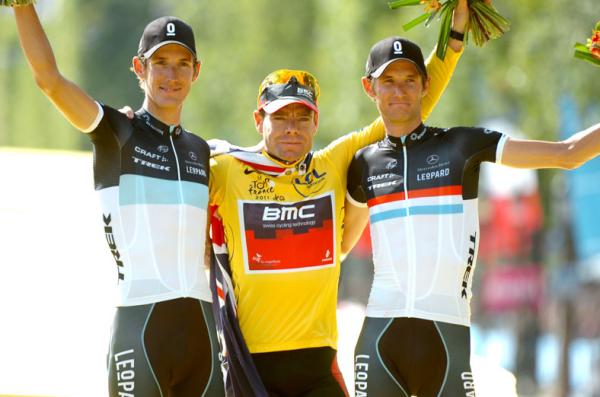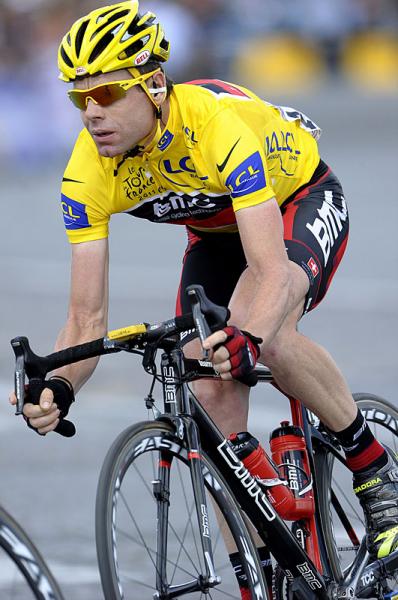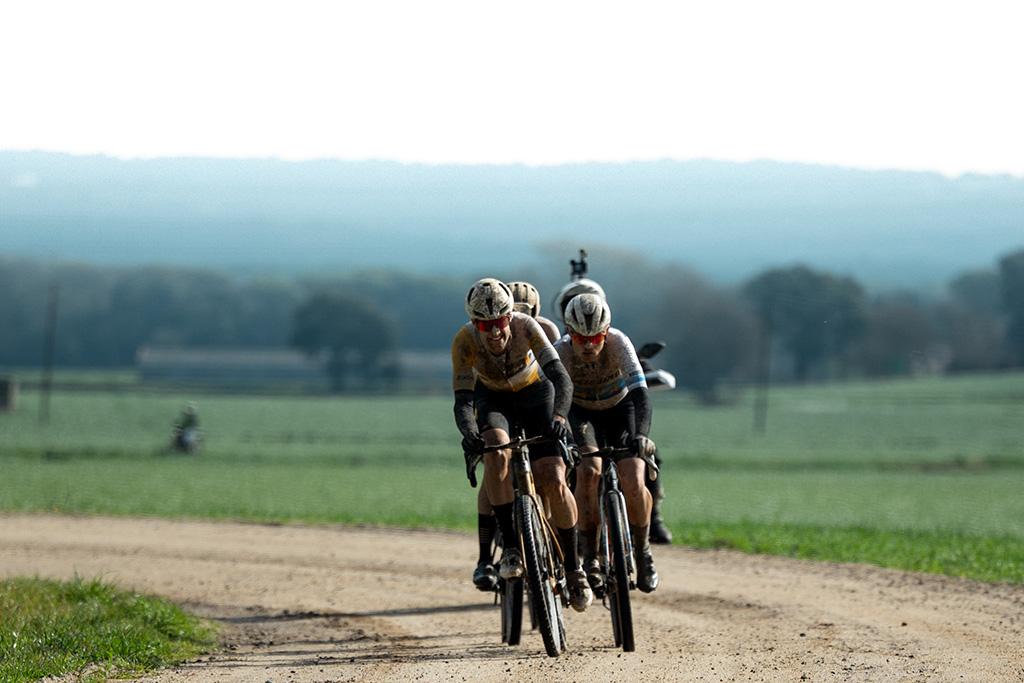Why Evans beat the Schleck brothers
Four crucial areas where the Australian came out on top
The latest race content, interviews, features, reviews and expert buying guides, direct to your inbox!
You are now subscribed
Your newsletter sign-up was successful


So why did Cadel Evans win this year's Tour de France over the Schlecks? Leopard Trek had the two of them to use tactically. They had numerous mountaintop finishes suited to their climbing abilities more than the gutsy Australian. On paper, the new team looked a stronger unit than BMC. There was even less time trialling than usual for the brothers to worry about. So what went wrong?
Well maybe that's not quite the right way of asking the question, because when you finish second and third, not that much went wrong. I think it's better to ask, what did Cadel do right that Andy and Fränk Schleck didn't quite match?
1. Take the responsibility of being a favourite and act accordingly
Straight from the start and all through the first week, Evans and BMC rode at the very front of the peloton, staying out of trouble, avoiding the inevitable crashes and looking out for opportunities to take time on their rivals. A couple of seconds here and there might not seem much but psychologically it becomes important.
The Schlecks managed to position themselves much better than they have done previously. Having Fabian Cancellara, Jens Voigt and Stuart O'Grady to look after them was a major bonus, but it still seemed that they struggled more with the constant demand of being at the front, fighting, holding their place. It wasn't a major difference, but at certain moments they had to move up from too far back and that waste of energy was something which Evans avoided more successfully.
A big part of peloton etiquette is establishing your right to be at the front of the bunch, earning respect so the others know that's where they'll find you and you won't be giving up that place easily. BMC put their man in that position from the off and kept him there continuously.
2. Take advantage of every situation
The latest race content, interviews, features, reviews and expert buying guides, direct to your inbox!
Cadel looked for the opportunity, the chance to take time, while the Schlecks looked like they were trying to avoid losing it. It's a subtle difference, but again in the mental game it puts them on the back foot and then the doubts perhaps start developing.
Evans showed that he was ready to fight all day every day and he showed he was strong and not afraid to commit himself. The Schleck brothers didn't quite come across as being willing to race every situation. They always seemed to be defending even when they were in front of Evans. There was always a feeling that they did not have enough time in hand to be safe.
3. Skills
Uphill? No problem, the Schlecks do that as good as anyone, only Contador is better. Coming down the other side, however, it doesn't look comfortable. As a weakness, descending is probably their most obvious one, particularly in the wet and other riders are always going to exploit that.
Their time trialling isn't good enough either. Despite talk of specific training, it still needs more work. Their positions aren't as good as they could be and they don't look powerful on the TT bike. Cadel, on the other hand, has no problems downhill or going around wet corners, and he looks like he's done the hours on his TT bike as he looks much more comfortable, being aerodynamic and strong.
4. Tactics
Andy Schleck's epic attack to win on the Galibier was probably the most dramatic part of this year’s GC battle. Definitely an historic moment but for all the glory it wasn't enough to win him the overall race. Why? Because Andy and Fränk Schleck needed to put Evans under that kind of pressure whenever they had the chance.
For example, in the Pyrenees when they ought to have been attacking relentlessly to distance their rivals, they either couldn't or wouldn't, in case Contador countered them. What with the constant looking around to see what the other brother was up to, they seemed more frightened of what the Spaniard might do rather than just getting on with trying to win the race.
The moments where we saw them riding next to Contador and giving him the evils were never going to be anything other than a complete waste of time. The guy has won three Tours, a Giro and a Vuelta, he's not going to be scared by playground antics. When they did commit themselves, it was too little and too late in the stages so the gain wasn't great.
By the time they reached Alps it was obvious they had to do something special, hence Andy's great escape from 60km out. Of course that put BMC in trouble, but Fränk needed to mess up Cadel’s chase by attacking also and causing changes in the pace. As it was, when Cadel had to ride to limit the losses, it was sidewind and steep so it wasn't that easy to follow.
Contador’s attack on the Col du Télégraphe the next day was another chance to do something about gaining more time. If Fränk had been able to stay with Contador and Andy then they could have sacrificed him to distance Evans, or when Voeckler and Evans were dropped halfway up the first mountain, Andy could have done a minimum to help Contador and encouraged him to really push on. He had five minutes to play with over the Spaniard, so even if he lost time to him on the Alpe d'Huez, it wouldn't have been dramatic. They could even have waited for Voeckler when he was in between the groups, then Europcar wouldn't have chased and BMC would have been isolated again.
As an aside, quite what the yellow jersey wearer thought he was doing in no-man’s land was beyond me, his DS needed to either tell him to wait for his teammates in the chasing group behind or talk to the Saxo Bank guys about getting Contador to knock off the pace and let him get up to the front. If that had happened and they all rode in the front until the base of the last climb then there might have been a panic at BMC. As it was, Voeckler lost his podium place by continuing to chase on his own for too long.
Cadel Evans was probably lucky to have a mechanical and end up with his teammates to chase back on, or else he was very wise not to go too far into the red trying to stay with the younger Schleck and an angry Contador. Choosing instead to stay calm-ish and wait for the final fight on the Alpe would have needed a confident person. By the time they were on the last climb, everyone was tired and the Schlecks couldn't distance Evans, who quite rightly refused to collaborate in the chase of Contador.
They might have been one and two on GC that night, but despite talking themselves up, the Schlecks knew the lead wasn't enough . Cadel ate them both in the TT because he knew the course from having done it at the Dauphiné and he knew he was anywhere between a minute and a half to two minutes better than them on that course and he rode it with that confidence.
In the end, confidence was probably the difference. The whole race, Cadel Evans looked like he was riding to win the Tour, while the Schleck brothers looked like they were trying not to lose.
Robert Millar was one of the last pure climbers of the Tour de France, winning several stages in the mountain stages and finishing fourth overall in 1984. He is also the only English speaker to have ever won the prestigious polka-dot jersey climber's competition jersey.
Millar retired in 1995 but has continued to follow the sport closely. He was often critical of the media and quickly cuts through the excuses and spin to understand why and how riders win and lose.
